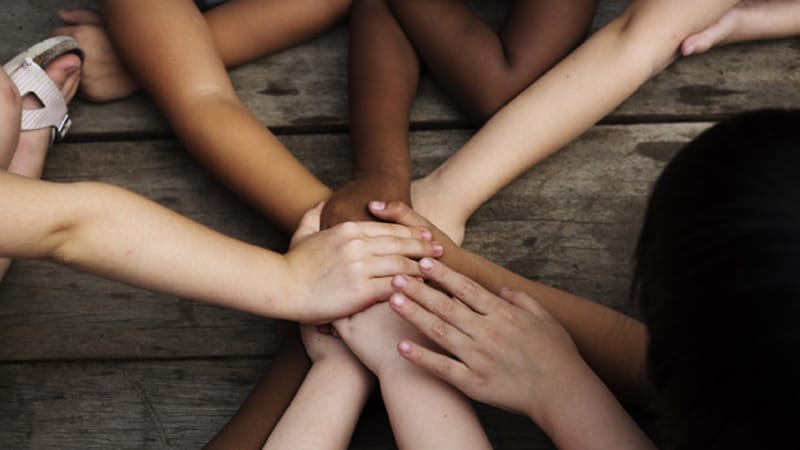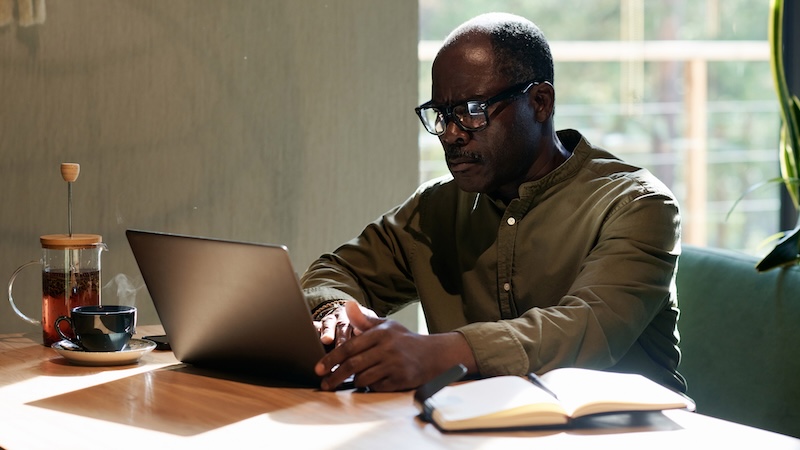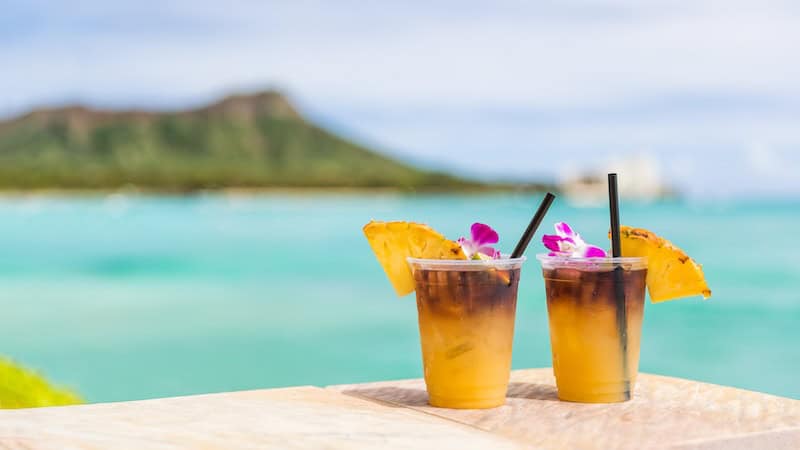A New Handbasket
Hope for the next generation

Every generation figures that the current crop of kids will send the world to hell in a handbasket when it’s their turn.
My dad wore a straw hat and Hawaiian shirts; my mom wore pants. They listened to Tommy Dorsey and had friends of color. I’m certain my Russian and Ukrainian grandparents spotted these as signs of decadence in their offspring born in Amerika. The shtetl, at least, had discipline, an ancestor-respecting ethos and music that didn’t make the kids spasm and call it dancing.
When our turn came to be young, we wore peace signs or not much at all, and we fought a war our fathers blamed us for losing. With rock ’n’ roll and our conflicting politics, our explicit movies and mass dissent, we may have set a new bar for foreignness to our antecedents. At least my parents didn’t reject their elders, didn’t tear down icons and institutions, then build new ones specifically to tick off their parents. Your folks and mine went their own ways into the Depression, then to Germany and Japan. They didn’t flip grownups the bird or distrust everyone over 30. When they built their new world, our parents preserved some of the better pillars of the old.
Then we, like Samson, brought the pillars down.
We changed America, and America led change in the world. We created new standards of living at home and wrought a better political future for much of the planet, often through leadership, often through chicanery. We freed some oppressed peoples, ginned up a few technologies that magicked the earth for better or worse. We have history’s best haircuts and most sensible wardrobes; a classic look does prevail nowadays. Kudos to us. We have tipped many scales; our advances in feminism and civil rights are not small accomplishments.
But, people, we have left a lot undone. Our relations with race, gender and sexual orientation didn’t make the headway on our watch they might have, not on a par, for instance, with technologic and economic advances. The young folks will inherit a prosperous country and a relatively secure one. And some chores, specifically how we view and value each other.
NO JUDGMENT
I’ve been teaching this next generation at the university level for a decade. These are the kids who are going to foul everything up next. And they will. But let me tell you what I see in them that no previous generation has witnessed.
You and I came into this world tutored by prejudice. Let’s admit it. We struggled with our parents’ cultural limits more than anything else they tried to hand down. Today’s youth, frankly, don’t give a damn for biases about color and gender and who we love, for behavioral and intellectual definitions, taboos for language, on body shape and body art, our preferences for types of beauty and brains, our fascination with power, even our reliance on national boundaries. They’ve not given prejudice new names or hidden them away. Today’s youth have thrown off the saddles of judgment and fear that our parents yoked us with.
In a creative writing class I teach at VCU Honors College, I had a student who might be classified as being on a spectrum of some sort. He’s a wonderful kid, brave and creative, but awkward and self-conscious. At the end of every semester, we hold an event called Spoken Ink, where a handful of my writers are chosen to read their stories aloud for the honors community.
Prior to a recent Spoken Ink, another of my students announced he’d done a lot of poetry competitions. He volunteered to put the class through a drill, geek them up to perform.
He raised one hand, we followed suit; he chanted in a cool rhythm: “I. Feel good. Like I. Knew. I would.”
We raised both hands, and he chanted again. Next, our left legs. Finally, he rallied us into a full-on geek out, limbs flailing.
We laughed and felt ready. Then this boy, this exceptional boy, asked if he might lead the drill.
I hesitated, because I didn’t know better. Because I am my parents’ son. But I answered, “Yes, of course.”
He blew it entirely. He was gangly and without pace, monotonal and the opposite of cool.
My students gave him their most rousing support, their full-on geeks, flittering and cheering as if he were like them. And he was, he so was, because they let it be that way. He led them, and he was not different.
I hate their music. I question their reliance on phones. I worry they’re not tough enough to defend me in my old age. But, Lord, please let me live long enough to see how much more of us these young people can shed, and some of the gentler world they will build because of it.
David L. Robbins is the best-selling author of novels such as The Devil’s Horn, The Low Bird and Last Citadel. The Sandston native is the founder of the James River Writers, cofounder of The Podium Foundation and creator of the Mighty Pen Project veterans’ writing program, in partnership with the Virginia War Memorial.


